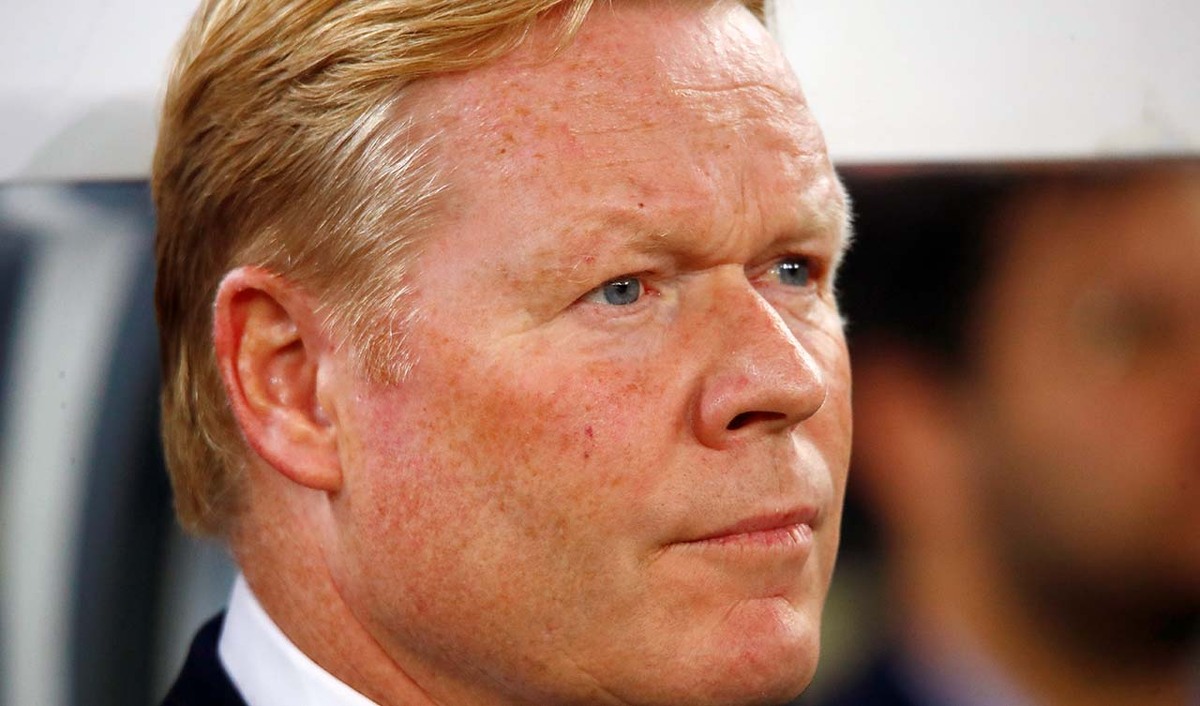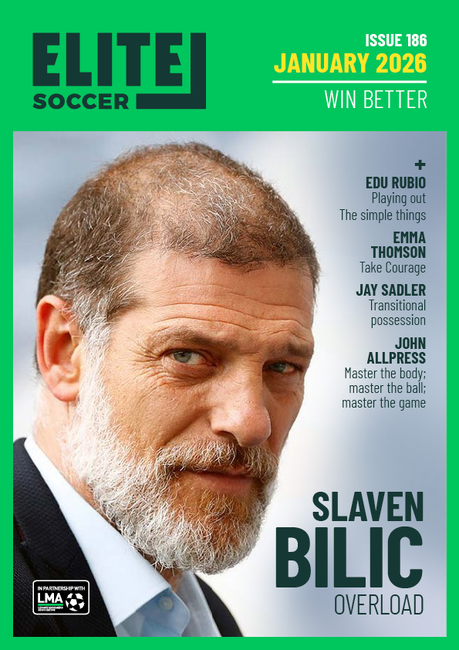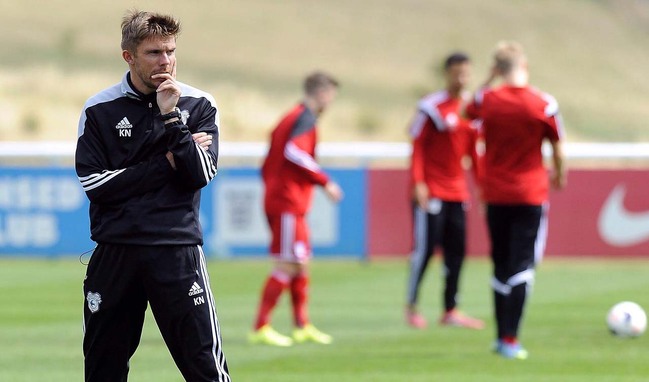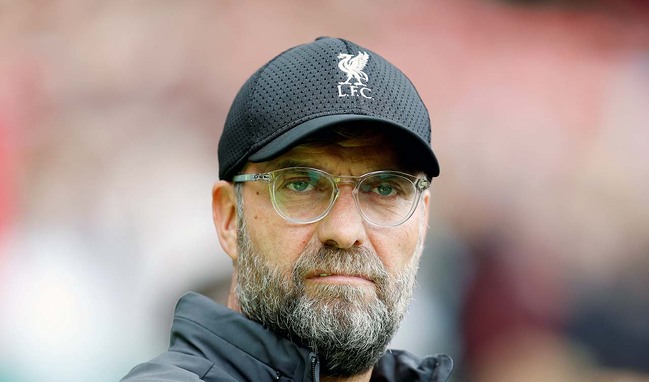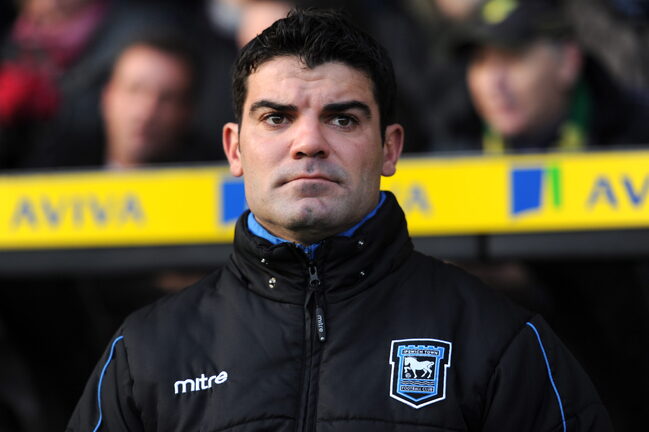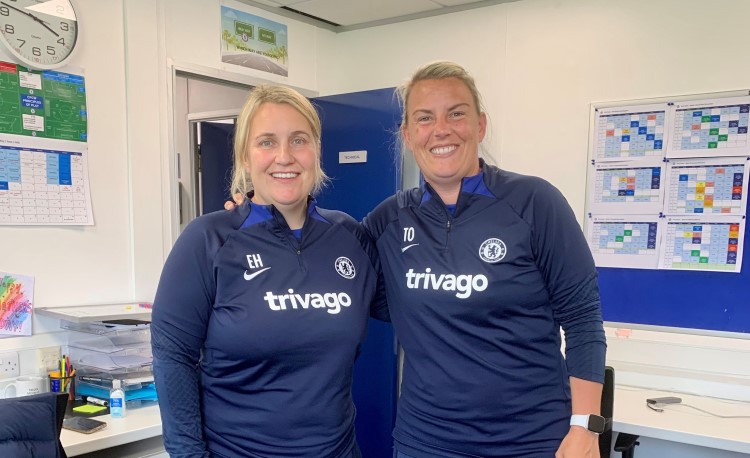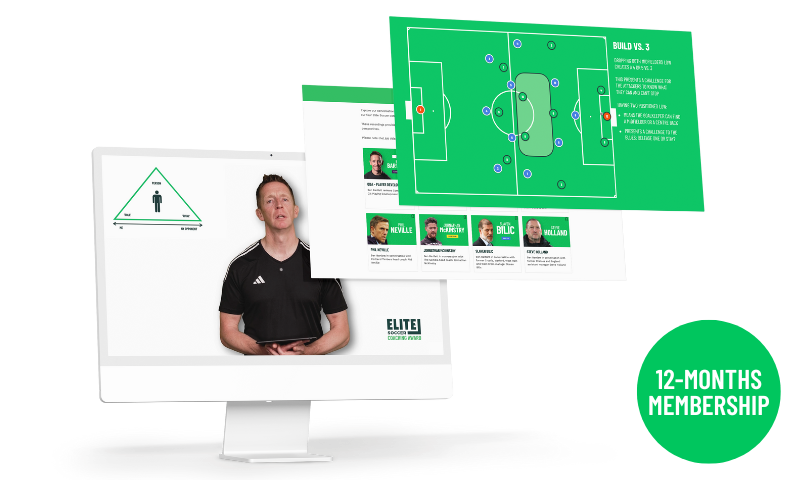
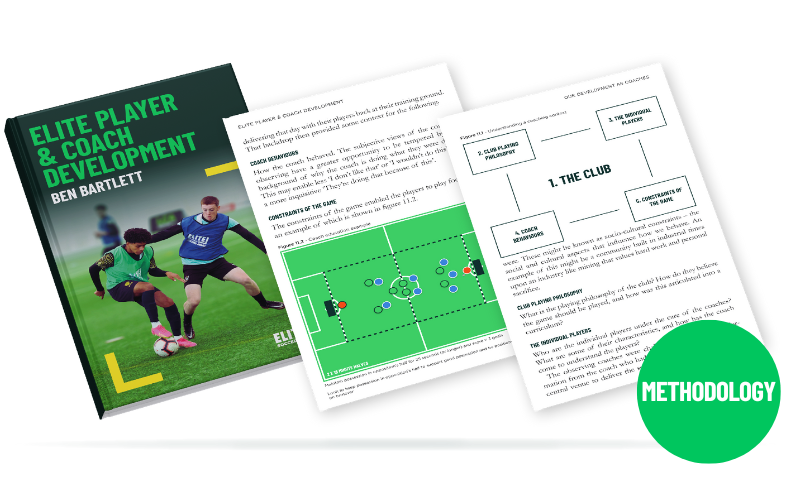
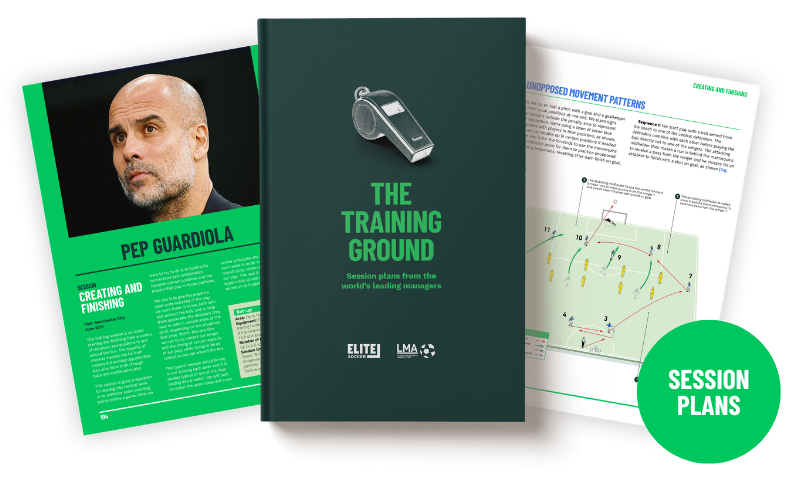
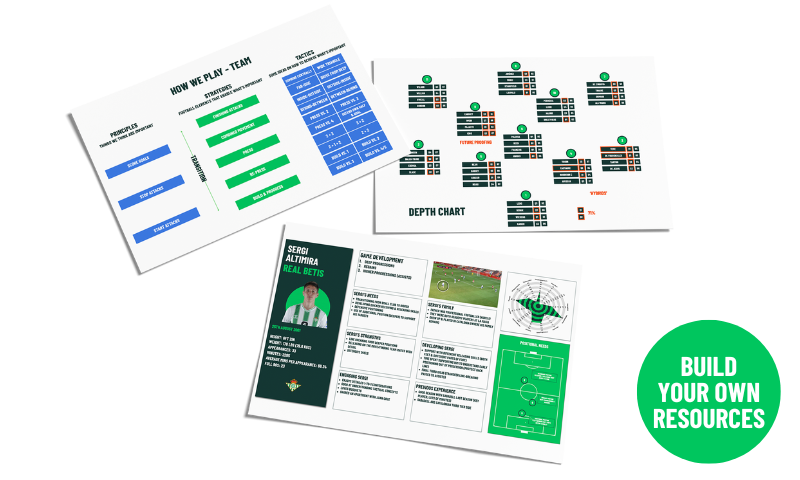

OUR BEST EVER OFFER - SAVE £100/$100
JOIN THE WORLD'S LEADING PROFESSIONAL DEVELOPMENT PROGRAMME
- 12 months membership of Elite Soccer
- Print copy of Elite Player & Coach Development
- Print copy of The Training Ground
You are viewing 1 of your 1 free articles
Cool, calm and collected
Ronald Koeman’s 15-year management journey has taken him across Europe, but only recently has his career path ventured onto UK turf. Sue McKellar speaks with the Southampton boss to get an insight into his approach to leadership and management.
Koeman is as composed and tactical a manager as he was a player and has the potential to be just as successful. During his former career as an attacking central defender, he scored more goals than any other defender in history and won numerous titles, in his Dutch domestic league, in Spain and in European competition.
After he hung up his boots in 1997, Koeman, the brother of a football player and head coach and the son of an international football player, was never likely to turn his back on the game he loved. He grabbed his first opportunity to manage with both hands, leading Dutch side Vitesse to the UEFA Cup despite having only limited resources. Between this promising start and his current position, Koeman’s management career has taken him via some of the biggest leagues in Europe and seen him hold the top job at all of Holland’s big three clubs.
Now manager of Southampton, Koeman has just experienced his first full season in charge in the Barclays Premier League, achieving an impressive seventh-place finish to secure European qualification for the club for only the second time in 30 years.
At what point did you realise a career in coaching and management was for you?
I started thinking about a career in coaching and management when I was about 30. When you reach that sort of age as a player you know that it’s unlikely you’ll be playing for many more years, so you need to start thinking about what to do next. I was fortunate that, thanks to my past career as a player, I qualified to take part in a special coaching course in Holland, which prepares you for a career in management. I took the course alongside the likes of Ruud Gullit, Frank Rijkaard and Johan Neeskens, and it was an invaluable opportunity for us to complete our coaching qualifications in only a year.
I knew that taking advantage of this educational opportunity would allow me to see if a career in coaching was something I wanted to pursue, and I realised very quickly that it was. Gus Hiddink was the Dutch national coach at the time and I had the opportunity to learn and gain experience as his assistant coach during the 1998 World Cup before becoming assistant coach at Barcelona. Finally, I was given the head coach position with Vitesse Arnhem.
As a player, you were known for having great vision on the ball and being able to see how a game was unfolding. These are also key skills in management, so did the transition come naturally for you?
In terms of the tactical side of management the transition did feel very comfortable. As a player I had been a defender and defenders tend to be more involved in team tactics than, say, strikers who have their own responsibility for getting the ball in the back of the net.
As a defender you need to be very organised and have a good tactical awareness, because you are watching the game unfold in front of you. When I became a manager it certainly helped that I was used to discussing team tactics and organisation. I was already conditioned to think in that way.
The fact that I played in several positions on the pitch also helped me to relate to the team. I have good relationships with my players and it’s great to be able to draw upon my own experiences as a centre back and later in my career as a midfielder. For the positions I have never played in, such as forward, I try to find others in my coaching staff who have, so that all of the players benefit from first-hand, specialist knowledge and experience.
You have worked across Europe, but this is your first post in the UK – how does it compare?
The job of management is pretty much the same in the Barclays Premier League as in the other countries I’ve worked in. However, the level that the teams are playing at is much higher, certainly in the intensity of games, and that makes a difference.
One of the best things about managing in the Premier League is having use of all the great training facilities. The infrastructure here at Southampton has been set up to provide the very best opportunity for players to be successful. You can also feel that everyone involved at the club is working hard to help the manager, team and club succeed, which is really great. It is wonderful to have the opportunity to be a part of the Barclays Premier League and it’s a pleasure to work at Southampton, where the supporters like football and like the way we play.
You have played for a number of world-class managers. Did they influence your approach or style?
Yes, when you’re a player or a coach you are always learning from and making observations of the managers that you work with. You’re constantly being influenced by what those managers are doing and when you become a manager yourself you have to try to assemble all of that insight and then see how it fits with your own philosophy and character. Staying true to yourself is very important. To succeed in this profession you need experience and knowledge and that comes from continuous learning, every day, whether from a meeting or from certain moments in a game.
When has your learning curve been steepest?
Often the biggest things you learn come from your mistakes. For example, when I lost my job as manager of Valencia and then later from AZ in Holland they felt like the worst periods of my life, but I learned a lot from those tough times. Sometimes things won’t go so well and you’ll find your team struggling more than normal, but that’s just part of management. That’s football. If you’re to deal with those tough periods well you need to enjoy your job and know that you’re doing your best.
It’s also important to me to have good relationships with my players, so I am straight with them and am always working to do my best for them and the club as a whole.
You clearly have the ability and desire to nurture young players and the patience to see them develop.
Yes and I believe strongly in doing so and in giving them confidence, particularly the young ones coming through. Nurturing players is a very clear part of Southampton’s philosophy as a club and I like that. I understand that you must have a balance between young and more experienced players, but part of the club’s philosophy is to give young players an opportunity to be part of the first team if they have sufficient talent. I’m not afraid to give them that chance, because I do it with full belief in their qualities and talents. It is part of my job as their manager to give them the confidence and time to progress.
That confidence comes in part from the manager’s own demeanour, which reflects on what he and the team represent. If I were to appear nervous then that would transmit to the players and fans. Fortunately, it’s in my character to be calm and relaxed. Certainly, when I’m on the bench I believe in staying calm; I don’t believe that shouting is always helpful for the players.
Tell me about your support team and how Sammy Lee and your brother fit in?
As soon as I knew I would be coming to Southampton as manager I knew that my brother, Erwin, the physical coach and the goalkeeping coach, Dave Watson, would be joining me on my coaching staff.
I was also very clear in my mind that I wanted an experienced English coach on my side, someone who knew the Barclays Premier League, the opposing teams, their players and their stadiums.
Being able to appoint Sammy Lee with the experience and background that he has as a player and a coach was a great opportunity. He has been a head coach, part of the England coaching squad, and was part of Rafael Benitez’s coaching team at Liverpool. He is very different from my brother and I, so is able to offer a different mentality and approach, and it means we have a broad mix of experience and perspectives in our coaching team.
We are a very close team and are always discussing tactics and our overall philosophy. This proved invaluable when, having ruptured my Achilles tendon before the opening match of the season, I couldn’t be on the bench. Even though it was an unusual and unexpected situation, we were very well prepared and I had full confidence in my staff. If you work together every day and everyone understands how you play, then you’ll always be prepared to face whatever comes next.
As a player you came through the Dutch system, where players are encouraged to give their thoughts and opinions during tactical preparation. Is that something you encourage as a manager?
Certainly. I believe in having a very good understanding between the players and the technical staff. It is very easy to just give orders and say ‘you have to go left’ or ‘you have to go right’, but I believe it is far better if the players choose to go left or right because they are thinking tactically; they know how we play and they understand why we are doing things in a certain way. To me, it’s important that the players have a level of understanding that means they are comfortable in their decision
making
Editor's Picks
Attacking transitions
Deep runs in the final third
Using the goalkeeper in build-up play
Intensive boxes drill with goals
Penetrating the final third
Creating and finishing
My philosophy
Pressing initiation
Compact team movement
Coaches' Testimonials

Alan Pardew

Arsène Wenger

Brendan Rodgers

Carlos Carvalhal

José Mourinho

Jürgen Klopp

Pep Guardiola

Roy Hodgson

Sir Alex Ferguson

Steven Gerrard
Coaches' Testimonials

Gerald Kearney, Downtown Las Vegas Soccer Club

Paul Butler, Florida, USA

Rick Shields, Springboro, USA

Tony Green, Pierrefonds Titans, Quebec, Canada
Join the world's leading coaches and managers and discover for yourself one of the best kept secrets in coaching. No other training tool on the planet is written or read by the calibre of names you’ll find in Elite Soccer.
In a recent survey 92% of subscribers said Elite Soccer makes them more confident, 89% said it makes them a more effective coach and 91% said it makes them more inspired.
Get Monthly Inspiration
All the latest techniques and approaches
Since 2010 Elite Soccer has given subscribers exclusive insight into the training ground practices of the world’s best coaches. Published in partnership with the League Managers Association we have unparalleled access to the leading lights in the English leagues, as well as a host of international managers.
Elite Soccer exclusively features sessions written by the coaches themselves. There are no observed sessions and no sessions “in the style of”, just first-hand advice delivered direct to you from the coach.
